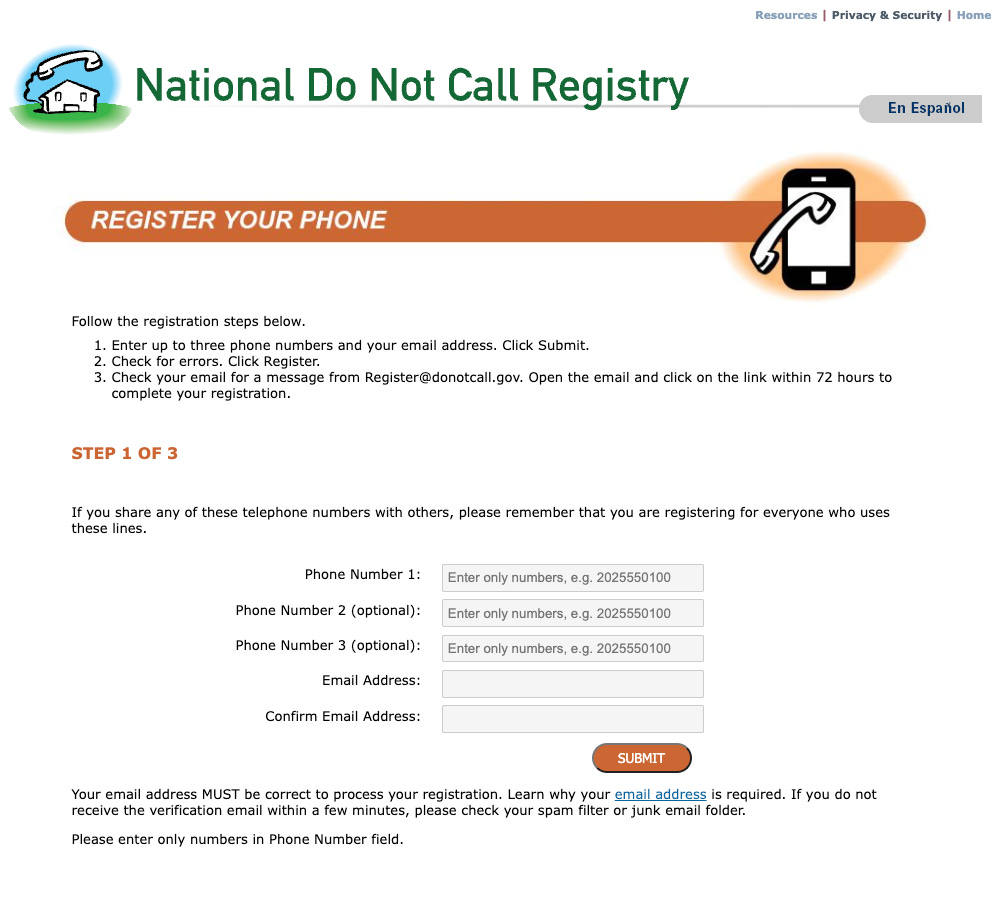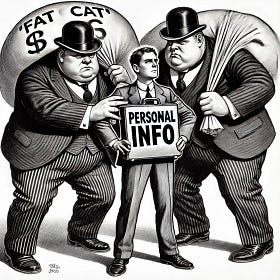Spam calls are increasing in 2025, and it's not just scammers. Learn how to take back your number.
Spam from marketers and scammers is annoying and creates privacy and security risk. Follow these 6 simple steps to reduce the amount of spam you receive.
Robocalls are rising fast in the United States in 2025. According to a recent study, robocalls are up 11% compared to the same period in 2024. This increase is driven by “legal” marketing calls, resulting from a change in FCC rules regarding consent that allows a company to which you have given consent to share that consent with other companies.
Calls from unknown numbers are not only annoying, they are risky. A call from an unknown number might be a telemarketer trying to sell you something, but it also may be a scammer trying to make you a victim. As a recipient of the number you don’t know.
Phone lists power both the legal marketing industry and the illegal scammer industry. These industries are governed by volume and conversion rate. The more likely a phone number is to result in a sale or a victim, the more valuable that phone number is. This is why, based on the behavior of the humans behind the phone numbers, they can become more valuable and be placed on higher-value lists that are bought and sold (leading to more and more spam calls).
To minimize the annoyance of marketing calls and the risk of scammer calls, you don’t want your phone number to be on any of these lists. And you don’t want your phone number to be on a high-value list.
Here are the six steps you can take to fight back against this type of spam:
1. Never answer calls from unknown numbers.
When you answer a call from an unknown number, you might unintentionally fall for a sales pitch or become a victim of a scammer’s scheme (these scams are getting more and more sophisticated every day, such as family emergency scams).
If you answer a call, you have made your number more valuable, because the caller has now confirmed that 1) there is a human tied to this number, and 2) the human will answer the phone.
Once your phone number becomes more valuable, it will be on more and more lists, sold to other companies or scammers, and you will receive more calls.
A 2023 study showed that 75% of Americans don’t answer calls from unknown numbers, which is encouraging. Make sure you’re in that 75% and not the 25% that answers these calls.
2. Delete your customized voicemail greeting.
Delete the customized voicemail message where you are using your voice to tell the caller to leave a message. A customized voicemail message is a signal that 1) there is a human tied to this number, 2) may confirm the name of the person tied to the number (if you give your name in your voicemail greeting), 3) provides an easy to access sample of your voice (this can be used to create deepfake audio of your voice).
3. Use a secondary phone number.
See my previous post on this topic for more details, but the summarized version is this: obtain a secondary phone number from a service like Google Voice and use that number instead of your primary cell phone number when signing up for accounts, etc. This keeps your primary number out of marketing databases.
How a Spare Phone Number and Email Could Save Your Identity & Privacy (And It’s Shockingly Easy)
Your phone number and email address are more than just contact details; they are valuable pieces of your digital identity!
4. Sign up for the National Do Not Call Registry.
The National Do Not Call Registry was created to stop unwanted sales calls from “legitimate” businesses. Adding your number to the registry will reduce unwanted calls and prevent companies from buying and selling your number.
I have heard some feedback about folks who are skeptical about the value of the Do Not Call Registry. My view is that anytime you can block a company from using your personal information, it is worth it, especially if it takes less than 1 minute to do this step.
Pro-Tip: If you have an elderly loved one you want to protect from elder abuse (companies can take advantage of people (especially older folks) who might be lonely to sell products), register their number too!
Here’s how you register a number.
Visit DoNotCall.gov or call 1-888-382-1222 (TTY: 1-866-290-4236) from the phone you wish to register. It’s free.
Click “Register your Phone.”
Enter up to three phone numbers. Ensure you enter both your primary and secondary phone numbers (and any other numbers you may have). Enter your email address.
Click on the confirmation email you receive.
This opt-out never expires (as long as your number isn’t disconnected or reassigned).
Unfortunately, this does not cover calls for the following purposes: political calls, charitable calls, debt collection calls, purely informational calls, or surveys.
5. Opt out of all marketing communications.
Any time you sign up for a service or with a company, explicitly opt out of marketing communications. You can do this by checking the privacy policies or locating the marketing settings within your account. As an example, I have published a series of posts on opting out of marketing for financial institutions.
Don't let banks use your personal information for profit -- take the time to opt out, and preserve your privacy.
Those of you who have been subscribed for some might recognize this topic. Last year, I published a series of three posts highlighting the importance and challenges of opting out of banks selling and sharing your personal information.
6. Use call-blocking or call-labeling services.
Various services offer call-blocking or call-labeling functionality, which automatically blocks suspected spam or labels it as such, making it easier to identify potential spam.
CTIA.org (Cellular Telecommunications Industry Association) has a list of Android Apps and iOS Apps that do this, including some that you might get for free from your cell phone provider.
Google’s phone dialer App, available on many Android devices, has this built in (more info here). Apple recently announced that its new iOS will also feature advanced spam tools (more information here).
Cloaked’s Call Guard offers this functionality (as well as secondary phone numbers) as well.
Stay Safe!
Tate








